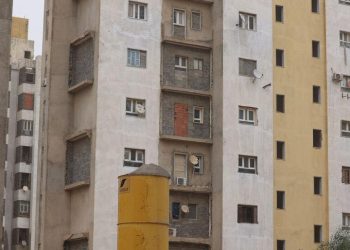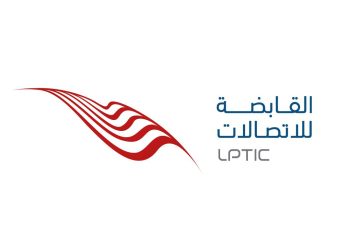Libya’s Grand Mufti, Sheikh Al-Sadeg Al-Ghiriani said that the ‘‘Absolute Speculative’’ (referred to as Mudaraba in Islamic – Sharia) certificates of deposit proposed for sale by the Central Bank of Libya (CBL) are not 100 percent Islamic – Sharia compliant.
The Fatwa by the Grand Mufti could not only wreck the sale of the CBL’s planned certificates of deposit but it could also create enemies and agitate activism against it if it is perceived to be acting in a non-Islamic manner.
A Fatwa is a legal opinion or ruling on a point of Islamic law issued by a qualified Islamic scholar, known as a Mufti.
The Grand Mufti, speaking on his dedicated satellite TV channel last Thursday (9 October), said these certificates of deposits offered by the CBL include a guaranteed profit, which is not permissible under Islamic law. Sharia-compliant speculation does not specify profit limits and requires a specific activity, he explained.
He therefore insisted that the CBL’s planned certificates of deposit must not be ‘‘absolute’’ but must specify in which sector they are to be invested.
The Central Bank must review this, he insisted, adding that this (certificate of deposit offer) is a wonderful project, and that he had demanded it, but its contracts must be truly (Islamically) legitimate and not merely fabricated, he warned.
He further warned that the CBL must not deceive the public into purchasing what are seemingly Islamic – Sharia compliant products which are not.
The Grand Mufti was responding to telephoned questions, as he regularly does, in a Q and A session with members of the public. During his answer to the question, however, he did admit that he had not yet read the exact details of the contract between the banks and the customer. He said he was commenting on what he had read.
Certificates of Deposit
It is surprising that the Grand Mufti has come out against the details of the contract offered by the CBL for its certificates of deposit launch. It would have been assumed that the CBL had sought Islamic – Sharia guidance on its offer from the Grand Mufti and his office. The disagreement on the contractual details is even the more surprising since the CBL has got an Islamic – Sharia department within it. Most Libyan banks today, and especially those who consider themselves as ”Islamic” banks or who offer banking products labelled as ”Islamic”, have an in-house Islamic – Sharia consultant to guide them on their products and activities.
The rules on Islamic – Sharia are debateable
It must be kept in mind that the rules on what is and what is not Islamic -Sharia compliant financial products are contested. Most of these rather complex financial products did not exist during the birth of Islam, nor are they directly clarified in the Quran. Islamic text and Islamic law experts have had to interpret Sharia (how Islam is practiced) to accommodate modern capitalism and financial and banking products. This, while steering totally clear of prohibited usuary or straightforward profit.
While there may be broad agreement on the core definitions about interest, profit etc, like the different religious sects and schools of thought, different groups differ on some subjects. Interpretation leaves room for difference, and this has led to some grey areas on the subject differing from one country, expert, Grand Mufti, school of thought – to another.
The CBL must have surely sought expert Islamic – Sharia guidance on its product, but the source of advice may have a slightly different view on the margins to those of Libya’s Grand Mufti.
CBL announces launch of LD 15 billion worth of Islamic – Sharia compliant Certificates of Deposit
It will be recalled that the CBL had announced on 25 September the launch of Certificates of Deposit worth 15 billion dinars, to be issued starting from October and ending this December. The CBL said the expected annual profit margin for these certificates is 7.5% for banks and 6.5% for investment clients.
The CBL had also announced on 8 October that its planned ‘‘Absolute Speculative (Mudaraba)’’ Certificates of Deposit will be issued to banks first, beginning on 12 October.
The launch of these Islamic / Sharia-compliant certificates of deposit, the CBL said, comes as part of its steps to enhance the tools and diversify resources for banks and activate several policy tools.
It will also be recalled that interest payment is prohibited in Libya, as per Islamic Sharia law. Hence, considering Libya’s weak political and security situation and its manifestation in a lack of confidence in the country’s banking system and the resulting cash shortage crisis at banks, there is, therefore, no incentive for citizens to deposit their cash in bank accounts.
Excessive cash is fuelling rise in dollar and fall in LD foreign exchange rate
The abundance of dinar cash outside the banking system has helped fuel the demand for the more stable dollar in the foreign exchange black-market, rather than the value-depreciating Libyan dinar.
The launch of LD 15 billion worth of certificates of deposit offering 7.5 percent to banks and 6.5 percent for investors is part of the CBL’s attempt to depress demand for the US$ in the FX black-market, defend the Libyan dinar and solve the cash liquidity crisis by attracting the hoarded dinars to banks.
It is believed that the money supply in the Libyan economy exceeded 170 billion dinars by the end of August this year, representing 8.70% of the total money supply.
Hence, unless the CBL hastily amends the details of its certificates of deposit, the negative Islamic guidance and opinion by the Grand Mufti could seriously wreck its attempts to reform Libya’s ailing monetary, financial and economic system.
Absolute Speculative (Mudaraba) Certificates of Deposit
The Absolute Speculative (Mudaraba) Certificates of Deposit is supposedly an Islamic / Sharia-compliant product based on the customer’s deposit of a sum of money in an investment account. The bank supposedly invests this money in legitimate Sharia-approved activities within a certain period, according to the absolute Mudaraba formula, where the management and disposal of funds is at the bank’s discretion, without specifying an exact investment sector or activity.
This contrasts with the Restricted (Mudaraba) Certificates of Deposit where the owner of the capital stipulates specific conditions for the bank that are acceptable by Sharia, restricting the bank’s scope of investment of the capital.
Can any financial products be truly Islamic – Sharia compliant in a non-Islamic-dominated system?
It must also be made clear that there is an Islamic school of though that believes that the modern global financial system is unpreventably inter-connected to, and dominated by, the West, China, Japan etc.
Given this interconnectedness and flow of money across the globe from Islamic and non-Islamic states and financial systems, there can, according to this school of thought, by definition, be no such thing as Islamic – Sharia compliant investments.
Since the US, the West, China and Japan dominate the system and they pay profit on investments in a clearly non-Islamic – Sharia compliant manner, all financial investments today are to some degree polluted by interest.









